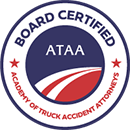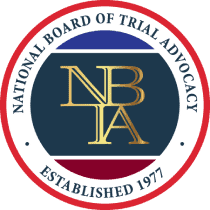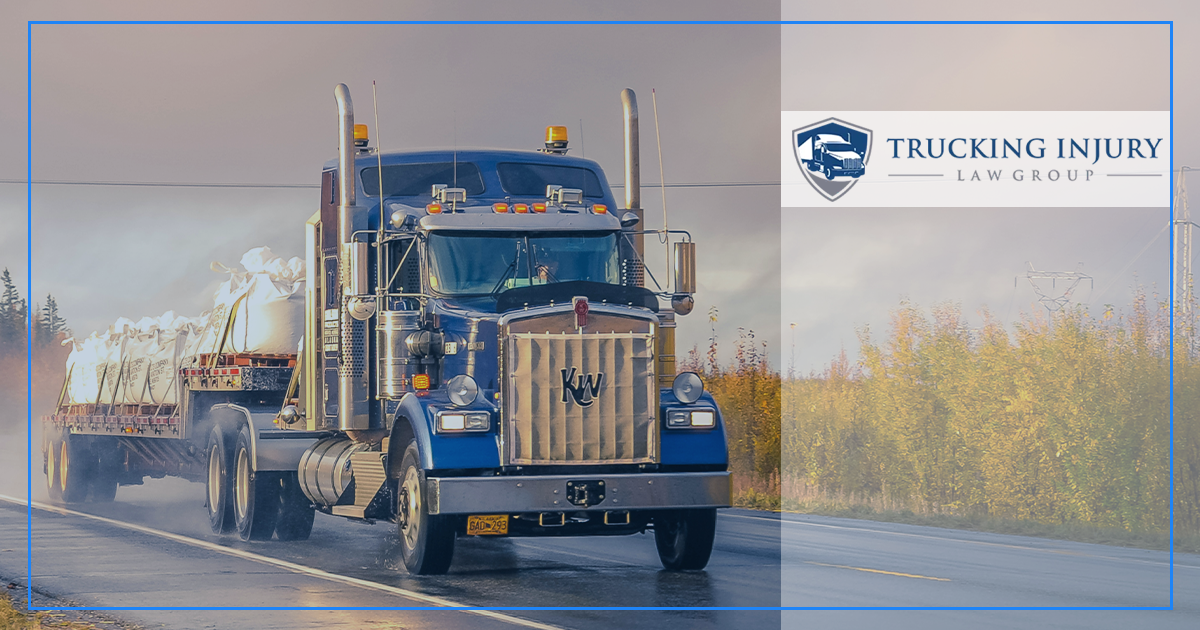What Happens if a Truck Driver Fails a Drug Test?
All truck drivers need to abide by certain regulations. One of the most important requirements is to ensure that these individuals are not under the influence when they operate any vehicle. If they test positive, it can lead to serious consequences for the driver and their employer.
At the Trucking Injury Law Group, we have seen the outcome of these tragic accidents.
So, what happens if a truck driver fails a drug test?
Let’s explore the potential consequences of a positive drug test.
Drug Testing in the Trucking Industry
Drug testing is mandated by the Federal Motor Carrier Safety Administration (FMCSA) and the Department of Transportation (DOT) to make sure everyone stays safe on the roads. Anyone with a commercial driver’s license (CDL) requirement and their employer must follow these program’s guidelines.
While all drivers are tested for alcohol and drugs during this pre-employment screening, it does not stop at that process. Drivers can be tested at random. Along with that, they can also be tested for substances after an accident, when under reasonable suspicion, and for return-to-duty situations.
Drivers are tested for several substances, such as:
- Marijuana
- Cocaine
- Opiates
- Phencyclidine (PCP)
- Amphetamines
Along with drug testing, drivers must also be tested for alcohol usage. If a driver’s alcohol content registers at 0.04 or greater, it triggers the same consequences as a positive drug test. They will face immediate removal from safety-sensitive duties and follow the return-to-duty process. The driver can return to their duties once all the required steps have been completed.
When a driver tests positive for the above, specific procedures are in place to handle these serious situations.
What Is the Result of a Positive Drug Test?
There are immediate consequences if a commercial truck driver tests positive for any drug. First, the driver is removed from performing any safety-related duties, such as driving a commercial vehicle. With that, the company can ensure that they will not operate a vehicle on the road while under the influence of drugs or alcohol.
Also, the driver could face the suspension of their commercial driver’s license (CDL), fines, and mandatory drug and alcohol counseling or rehabilitation. Additionally, their employer may face penalties and fines if they allow a driver who tested positive for drugs to continue working in a safety-sensitive position.
Drug testing is a routine part of the commercial trucking industry. All drivers are subject to random drug testing throughout their careers. The FMCSA wants to make sure that no driver operates a vehicle while under the influence of drugs.
Could a Driver Return to Duty?
Testing positive for any situation is serious. If a driver wants to return to duty, they must pass a rigorous process outlined by the Federal Motor Carrier Safety Administration to get back on the job.
First, the driver will need to meet with a DOT-qualified Substance Abuse Professional (SAP). At this time, the professional will evaluate their current situation. In some cases, the driver may need counseling or education to handle their substance abuse issues. In extreme cases, the driver may need to enroll in a treatment program for their drug or alcohol problems.
In these cases, the driver will need to show that they have successfully completed all treatment and education programs related to substance abuse. For first-time offenders, this can provide them with the right steps to cope with any issues that may have led up to the positive drug test.
However, that is not the end of the process. For a driver to return to duty, they will need to pass a follow-up test. Throughout this time, the driver will be monitored to ensure that they do not get behind the wheel while under the influence.
Once the driver successfully completes the process, they can return to their driving position. However, they remain subject to follow-up testing for a specified period.
Can a Driver Refuse Testing?
Refusing a drug or alcohol test is a serious issue. In these cases, it is treated as a positive result. Any driver who refuses to submit to testing will be immediately removed from any safety-sensitive functions until they complete the return-to-duty process.
Additionally, if a driver refuses to test, the employer must follow the established procedures outlined by the DOT. This means that there are exceptions. Employers must take appropriate action to remove a driver from any safety-related tasks.
Can a Driver Dispute the Results?
Sometimes, there could be a false positive. Medications or other factors can lead to these results. During this time, the driver is still removed from their duties until the matter is resolved.
After receiving a positive test result, the driver can ask for the original urine specimen to be divided into two separate containers. The second container, known as the split sample, is sent to a different laboratory for testing. If the split sample returns negative, it can serve as evidence to dispute the initial positive result.
However, the driver will still need to consult with a DOT-qualified Substance Abuse Professional. The counselor will evaluate the situation, consider any relevant medical information, and provide recommendations. Their assessment can help in the dispute process. In addition, the driver will need to present evidence to show that the positive result was incorrect or unjustified.
If they can prove that their test was a false positive, they could return to their duty. In addition, they will not face any repercussions from a positive drug test.
Unfortunately, while there are measures to prevent drivers from operating a vehicle under the influence, they do not prevent all accidents, such as truck rollover crashes, from occurring. These drivers are a serious threat to everyone on the road. If their negligence causes inquiries, property damage, and even death, you have the right to hold the driver and their employers accountable for these actions. A trucking accident lawyer can assist you with these matters.






